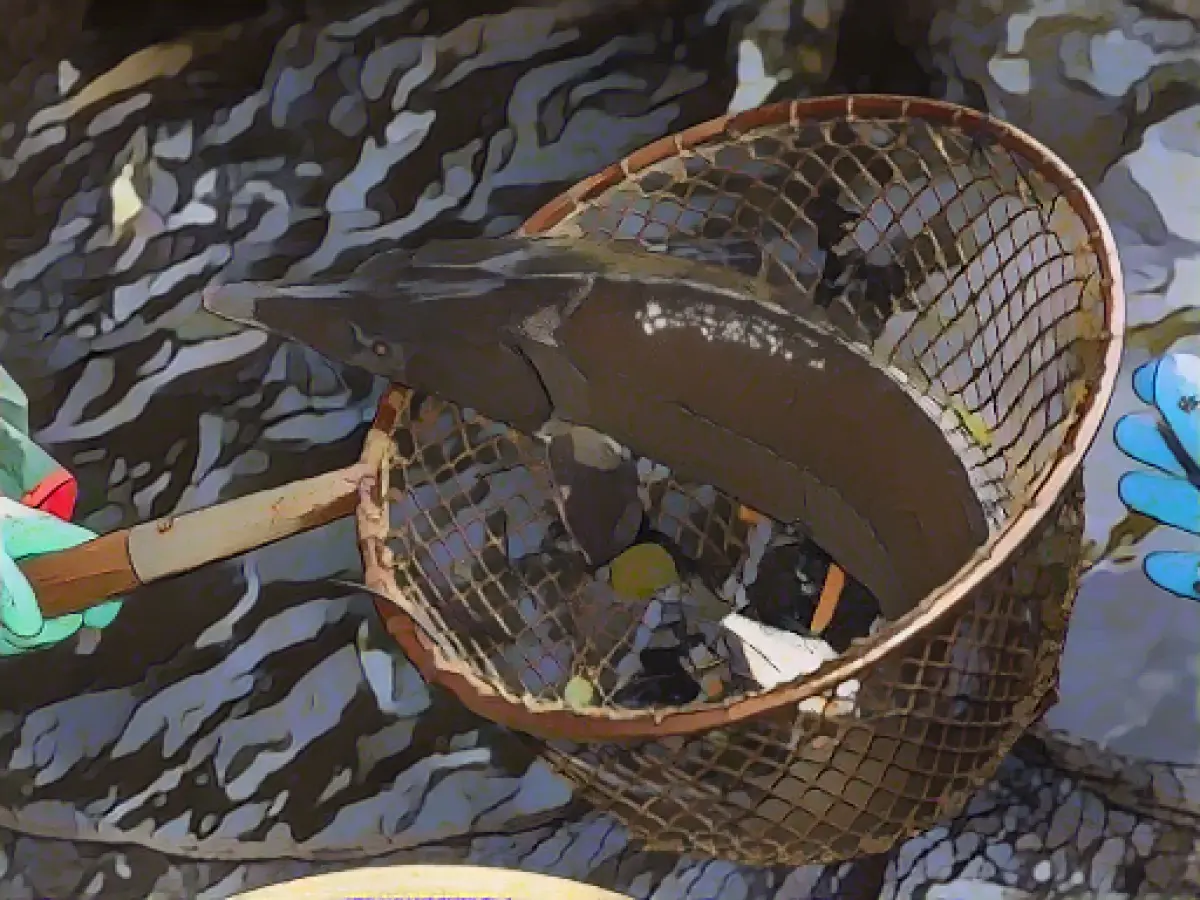Sturgeon and caviar: study often shows illegal origin
Measures to protect sturgeon in the Danube from poaching often do not appear to be sufficient. This is indicated by a study for which researchers examined almost 150 caviar and sturgeon meat samples. Using genetic and isotope analyses, they were able to prove that some of the fish products were of illegal origin.
The observed intensity of poaching undermines any conservation efforts, writes the team of authors led by Arne Ludwig from the Leibniz Institute for Zoo and Wildlife Research in Berlin in the journal "Current Biology". The trade in caviar and sturgeon urgently needs to be improved in order to secure the future of the stocks.
Caviar refers to the eggs of various sturgeon species that are caught in the Black Sea and the Caspian Sea, among other places. The high price and continuing demand have brought most of the species to the brink of extinction. Caviar is usually obtained by slaughtering the sturgeons.
In 21 percent origin in the wild
In order to verify the origin, the team obtained samples from various sources, such as retailers and restaurants, in Bulgaria, Romania, Serbia and Ukraine. Five samples were confiscated by the authorities. The result: products from wild sturgeon were being traded in all four countries. In 21 percent of all caviar and sturgeon meat samples, the researchers identified an origin in the wild. In around eleven percent, they found that existing rules had been violated, for example if the wrong sturgeon species or country of origin was stated for caviar. And just under a third were classified as consumer deception.
Even if poaching and illegal wildlife trade are often seen as a problem in developing countries, the results are proof that a high proportion of poached sturgeon products come from the EU and candidate countries, the researchers write.
They also report that some of the products were passed off as wild products, although they actually came from aquaculture. The results therefore also indicate that there is still a demand for products made from wild sturgeon. This promotes poaching and is an indication that consumers do not accept products from aquaculture as a complete substitute. In individual cases, the investigations also revealed that no trace of the fish could be found in alleged sturgeon products.
Fishing for sturgeon in the Danube prohibited
According to the study, sturgeon fishing is prohibited in the Danube in view of the endangered stocks, as every single individual is important for their survival. Since 1998, all sturgeon species have been protected by the Washington Convention on International Trade in Endangered Species of Wild Fauna and Flora (CITES), and an international labeling system for caviar products has been in place since 2000 to counteract illegal trade.
Today, according to the Berlin institute, caviar may almost exclusively come from farmed sturgeon. The sale of caviar found in the study, which violates CITES and EU obligations, calls into question the effectiveness of the controls in general and the labeling system in particular, said co-author Jutta Jahrl. She is the manager of a sturgeon protection project at WWF Austria, which was also involved in the study. In the study, the team assesses the results as "alarming".
- Despite measures to protect sturgeon in the Danube, illegal caviar and sturgeon meat are still being traded, with 21% originating from the wild.
- The high demand for caviar, often obtained by slaughtering sturgeons, contributes to the poaching of various sturgeon species, pushing many of them towards extinction.
- The study found that not only in developing countries but also in EU and candidate countries, a significant amount of poached sturgeon products are being traded, suggesting a persistent demand for wild caviar.
- The illegal trade in sturgeon and caviar is a concern, as it goes against international agreements such as the Washington Convention on International Trade in Endangered Species of Wild Fauna and Flora (CITES) and the EU's labeling system for caviar products, which aim to protect endangered species and prevent illegal trade.
Source: www.dpa.com








